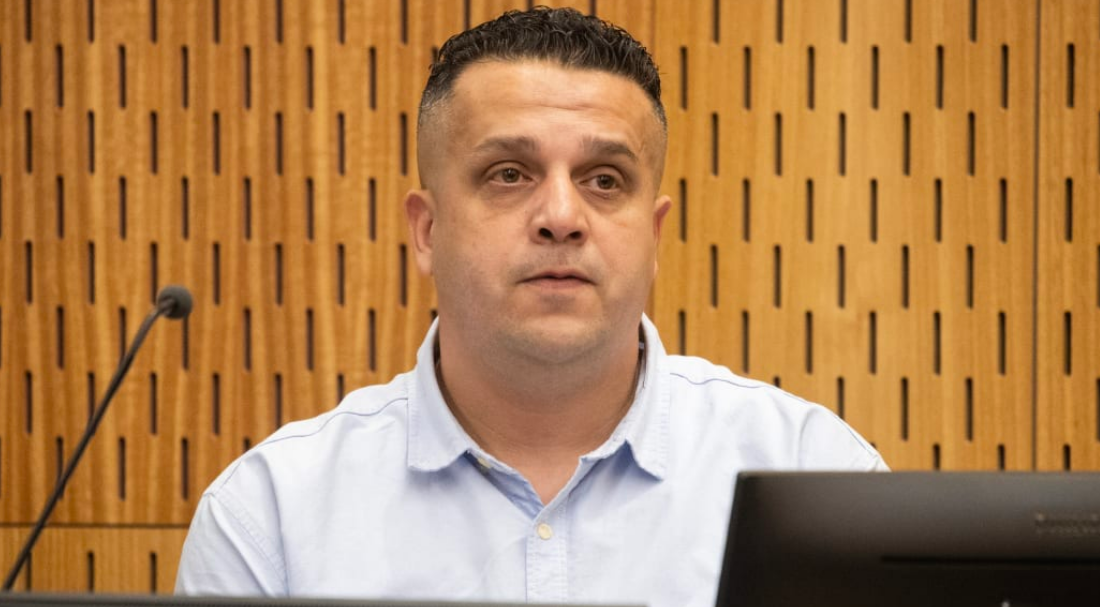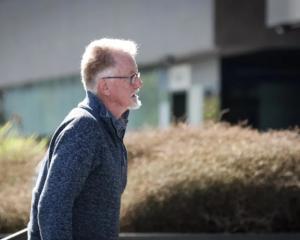
Two survivors of the massacre at Christchurch's Al Noor Mosque have recalled the moment they took cover behind cars while a volley of gunshots was directed at them, an inquest has heard.
Fifty-one people died as a result of the attacks during Friday prayers at Al Noor Mosque and Linwood mosque on March 15 in 2019, with dozens more injured.
Mohammad Siddiqui and Ahmad Alayedy were in the main prayer room at Al Noor when the terrorist opened fire.
The men told the Coroner today they rushed to an emergency exit door when the shooting began.
Both say they attempted to unlock and open the door, but it would not move.
Siddiqui, Alaydey and another worshipper quickly decided to kick out the glass panel in the door and escape through the open frame.
While he was hiding, Siddiqui told the court he quickly called his wife and told her not to let their son come to the mosque because there had been a shooting.
Still on the phone, he said he felt a "strong blast" against his left arm and felt warm blood rush out of his jacket sleeve.
He screamed in pain and fell to the ground, realising he had been shot.
He attempted to stop the bleeding, with another man helping him tie his jacket around the wound. He started to feel dizzy when he saw the 5cm to 6cm hole.
Soon after, Siddiqui said an Armed Offenders Squad member approached him with his rifle drawn, telling him to put his hands up.
For a fraction of a second, I wondered if he was the shooter," he said.
Siddiqui said he was hesitant to go with police at the time but was soon covered by two officers and taken to an ambulance for treatment.

Alayedy told the court he saw the terrorist from about 100 metres away while he was hiding behind a vehicle.
The terrorist then looked directly at him, pointing the gun in his direction. He ducked back down for safety and saw a bullet pass him, by mere centimetres.
When officers told him to come out to the road, Alayedy said he saw deceased people, including his friend.
A couple of days later, he went to the hospital and was told his ribs had been cracked in the chaos of trying to get out of the mosque.
Both men said they had experience with using the door to leave the mosque, and Alayedy said he had opened it himself to let people in when they were late for prayer.
They both described twisting the door's latch both ways to try and have it open, but it would not budge.
A senior sergeant told the court the emergency exit door in the main prayer room was malfunctioning at the time of the attack.
Detective Senior Sergeant Damon Wells, who was a crime scene examiner at the mosque, said officers had planned on using the exit to remove victims.
But the door did not open. It had a magnetic lock but neither that nor the mechanical lock would release it, Wells said.
Survivor recounts massacre
A third survivor from Al Noor Mosque also read his evidence to the court on Friday.
Mohamed Adwy said he first thought the incident involved a person running through the mosque and police chasing after them.
Gunshots turned to rapid fire, and he realised he needed to get out.
Adwy said he could hear bullets hitting close to him as he ran from the mosque, climbing over a neighbouring fence to get out.
He then saw a man in an "army suit" in the neighbouring driveway and thought he must have stopped the shooter. He was then told he was the shooter.
Once the terrorist had left, Adwy returned to the mosque, wanting to find his cell phone and call for help.
He told the court he saw a number of deceased people and struggled to continue to speak as he described finding a friend severely injured.
The inquest earlier heard a number of survivors wanted to re-enter the mosque one police arrived to help but were not allowed to go back in.
Adwy was one of them. He described feeling "helpless", knowing there were people dying inside who needed help.
"The least I could do was get in and get people outside," he said.
The inquest continues.













